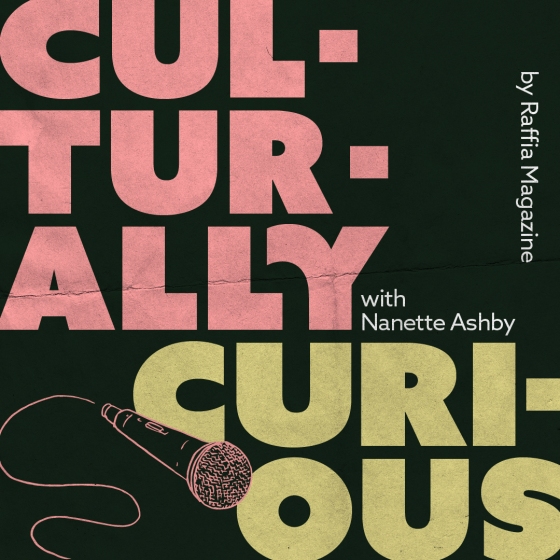In this installment, I’m joined by Marjolein Kik, a Dutch academic specializing in dress history and experimental archaeology. Their research into the history of Dutch pockets takes center-stage in this episode. We start with the question: What is experimental archaeology? Marjolein explains the nuances of this new and unique research method and how they created an educational tool for museums, based on this research. We discussed materials, sewing techniques and designs used to make pockets between 1650 and 1950.
Tag: gender stereotypes
Poem: Is This Love?
by Chiara Palmeri
“I lived in his shadow, in the imprisonment he imposed, but he never slapped me.”
Poem: Unlearning
by Paula Werdnik
“I learnt from a young age that to be a woman is to be water…”
Interrogating Street Harrasment with Judith and Roos of Catcalls of Nimma – Culturally Curious Ep.4
In this episode we are focusing on the work of Catcalls of Nimma who highlight and fight street harassment. I’m joined by the founders Judith Holzmann and Roos van den Oever to dive deeper into their process, from collecting the stories to putting chalk to the pavement.
Undressing Disability, Sex and Accessability with Jennie Williams from Enhance the UK – Culturally Curious Ep.3
This week I am joined by Bima Loxley who is a psychosexual therapist and sex educator based in the UK.
Intimicy, Mythbusting and Behind the Scenes of being a Sex Therapist with Bima Loxley – Culturally Curious Ep.2
This week I am joined by Bima Loxley who is a psychosexual therapist and sex educator based in the UK.
Sodomy, Sex Work and Homoeroticism during the Middle Ages with Dr Jonas Roelens – Culturally Curious Ep.1
This week I am joined by Dr Jonas Roelens. He is a historian and professor specializing in the history of homosexuality.
Queer cinema en de seksualiteitscrisis in Hollywood
Dit onmenselijke ideaal is echter volledig in lijn met bestaande schoonheidsidealen. Mannen zijn mooi wanneer ze mannelijk zijn. Bizar gespierd, lang en breed. Vrouwen zijn mooi wanneer ze lang haar hebben en een zandloperfiguur. De blockbuster esthetiek probeert zoveel mogelijk de status-quo van het ideaal te representeren. Deze idealen zijn gefilterd door de heteroseksuele verwachtingen van de maatschappij waar rigide gender normen en verwachtingen gelden.
Caring for those who care: a call for action.
by Elna Schmidt Those who have already experienced a moment in their life where control slips through their fingers know the pain that comes with the realization that for life to be the same again, it needs to be static. It is not. There is no default to which life can return; it has changed. March 2020 marks for many the beginning of such a drastic change, causing life to be altered for good. However, for me, March 2020 also signifies immense pain and the beginning of a horrific journey.
Sophia the Robot and What it Tells Us about the Current State of AI
By Lelia Erscoi The choice of pronouns is no arbitrary thing- Sophia’s (“Sophia – Hanson Robotics”, 2022) creators are doing all they can to make you think of it as a “her”. From its appearance, modeled on a mix of women’s faces – Audrey Hepburn’s, Egyptian Queen Nefertiti’s, and its own inventor David Hanson wife’s (Chung, 2022) – to the fact that it was granted human rights in Saudi Arabia (Parviainen, Coeckelbergh, 2021), the whole story behind Sophia is a very fascinating one that aims to inspire. However, that’s what it mostly is – a story.
Sexually liberated or slutty? The harm of slut-shaming
By Hanna Eisen Are you a prude, a good girl, or a slut? It seems like these are the only categories women can fall into regarding their sexuality. While women learn from a young age that they have to act according to societal standards, none of the possible decisions seem to be good enough. One should be flirty, but not too sexy; being a virgin is something to be embarrassed about, but enjoying casual sex is shameful. It seems impossible to walk the fine line of being a “good girl”, especially if that does not fit with the (secret) desires one has.
Women, violence, and war: “It’s the unexpected”
by Catarina Vila Nova Western societies aspire to ideals of equality but it’s in moments of crisis that the reality of where we still are comes to the fore. When it comes to war, gender norms are almost as rooted as they’ve always been. Even with catchy stories of female soldiers in the early days of the Russian invasion of Ukraine flooding our timelines, traditional gender roles still take hold.








